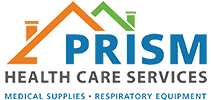Bite Into a Healthy Lifestyle
Snacks can be a fun and valuable part of a person’s healthful eating plan – but they can also add unneeded calories, sugar, sodium and fat. During National Nutrition Month, the Academy of Nutrition and Dietetics offers smart snacking ideas that help everyone “Bite into a Healthy Lifestyle.”
“If you choose carefully, and plan ahead, sensible snacks can be part of any healthful eating plan,” says registered dietitian nutritionist and Academy Spokesperson Isabel Maples. “Snacks can prevent overeating at mealtimes and throughout the day. For children and adults alike, snacks can supply foods and nutrients that we might miss in meals. Snacks especially offer a great way to eat more fruits, vegetables, whole grains and low-fat dairy.”
Each March, the Academy encourages Americans to return to the basics of healthful eating through National Nutrition Month. This year’s theme encourages consumers to adopt a healthy lifestyle that is focused on consuming fewer calories, making informed food choices and getting daily exercise in order to achieve and maintain a healthy weight, reduce the risk of chronic disease and promote overall health.
“A healthy snack can provide an energy boost, and satisfy your midday hunger. If you haven’t eaten for three or more hours, a snack can help bring up your blood sugar level for optimal energy. For older adults with smaller appetites or limited energy, several small meals including snacks may be easier for their bodies to handle,” Maples says.
Maples offers ideas for biting into healthy snacks:
- Plan your snacks. “Keep a variety of tasty, nutrient-rich, ready-to-eat foods nearby, for when you need a bite to take the edge off hunger. Then, you won’t be so tempted by less-healthy options from vending machines, convenience stores or the contents of your own kitchen.” Snack ideas include fresh fruit, air-popped popcorn, whole-wheat crackers, dried fruit and nut mixes, almonds and fat-free yogurt.
- Make snack calories count. “Snack on foods that fill the nutrient gaps in your day’s eating plan. Think of snacks as mini-meals to help you eat more fruits, vegetables, whole grains and low-fat dairy – foods we often don’t eat enough.”
- Go easy on high-calorie snacks such as chips, candy and soft drinks. “They often contain solid fats, and added sugars. Make these occasional choices that fit your day’s plan.”
- Snack when you’re hungry – not because you’re bored, stressed or frustrated. “Exercise can actually be a great way to feed those emotional urges.”
- Snack on sensible portions. “Choose single-serve containers, or put a small helping in a bowl rather than eating directly from the package.”
- Quench your thirst. “Water, low-fat or fat-free milk and 100-percent juice are just a few options. Flavored waters might be high in added sugars, so check the label.”
Making the right food and nutrition choices is a necessary part of biting into a healthy lifestyle. A registered dietitian nutritionist can help. To learn more and to find an RDN in your area visit eatright.org.
Source: The Academy of Nutrition and Dietetics is the world’s largest organization of food and nutrition professionals. The Academy is committed to improving the nation’s health and advancing the profession of dietetics through research, education and advocacy. Visit the Academy at eatright.org.
![Prism Healthcare [logo]](https://www.prismhc.com/wp-content/themes/prismhealthcare/images/logo.png)

